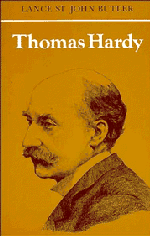Book contents
Summary
HARDY THE POET
Hardy is unique in being a major novelist and a major poet. All his verse was published after he had stopped writing novels, but it appears that he actually wrote verse throughout the seventy years of his adult life. His earliest extant poem, ‘Domicilium’, may have been written as early as 1857, and his last poems were apparently dictated from his deathbed. This extraordinarily long period of productivity accounts for the great number of poems that constitute the Complete Poems, nearly a thousand lyrics, ballads, odes, satires and epitaphs. Some of them can be clearly dated; most cannot. Hardy revised many of them after they were written, sometimes years after. Some of the most famous of them were generated by emotions connected with events of half a century earlier. In other words, his poems are held together by a web of cross-reference that we may at first find disconcerting. We are used to the idea that a poet develops chronologically; we expect to see that development from volume to volume as the writer matures, and we are cheated of this in the case of Hardy. Once we have accepted that we cannot watch him develop, however, we can turn it into an advantage: as it is not often possible to make excuses for Hardy such as ‘This is an early work’, we are forced to take each poem independently and on its merits. Hardy had every opportunity of altering or suppressing poems, and we can be sure that the poems we do have are largely as he intended us to have them.
- Type
- Chapter
- Information
- Thomas Hardy , pp. 161 - 180Publisher: Cambridge University PressPrint publication year: 1978



